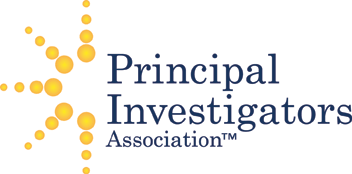No. 114: Was “Too Ambitious”to Blame for Non-Funding?
Reader question:
I recently received the reviewers' summary sheets for my first R01 research grant submission. The score was encouraging, but not fundable. The reviewers’ criticisms, however, were all mild and addressable, and did not represent specific flaws in the work itself. Two reviewers commented that the program is an ambitious one, and that perhaps I need to cut back on at least two of the proposed studies. I could easily do that, so why didn’t I get the funding? What am I missing?
Expert comment:
Interpreting the thoughts of the reviewers is a road to madness, but I might be able to read between the lines here. First, you got hit with the dreaded “A” word – ambitious. This is code for “your inexperience is showing.” Reviewers want to see originality and novel ideas or methods to some extent, but they do not want to see a proposal for a project that is so unusual or aggressive that it may not be doable. You are sure you can do it and maybe you can. But, um, “stuff happens”, and all of a sudden recruitment becomes sparse, a reagent was contaminated, something else goes wrong, and you’re behind. The reviewers want to be reassured that whatever you do promise, you will be able to carry out.
Perhaps your submission emphasized the wrong thing. I have observed many less senior investigators trying to show that their proposal is a bargain for the sum requested – lots of studies, lots of subjects, lots of outcome measures. But the reviewers don’t want or respect a bargain. They want to know that the work you propose absolutely will be done on the agreed schedule.
You may think that your project has none of these problems, but with an R01 submission, the issue is always the perception of the reviewer. With some grant applications, the problem is not any one major element but the accumulation of small issues. As the reviewers begin to read, a couple of details emerge that make them feel a bit uneasy, causing them to develop a negative feeling about the manuscript. In your case, perhaps it was the unrealistic schedule of the work to be accomplished that colored those perceptions.
Once reviewers are unfavorably disposed, it may be difficult to reverse the feeling. Many of them are unwilling to simply say “I didn’t like the proposal, no particular reason.” So, you get general statements or criticism of small points that don’t seem significant enough to prevent funding.
Comments by William Gerin, Ph.D., P.I. e-Alert’s Chief Grants Consultant, Professor of Biobehavioral Health, Pennsylvania State University, and Author, Writing the NIH Grant Proposal: A Step-by-Step Guide, SAGE Books (2006)
Limited-Time Offer Until August 31st:
Revising and Resubmitting Rejected NIH Proposals: What You Should Know Before You Try Again
60 Minute On-Demand Webinar available in 3 formats: MP4, CD-Rom, or PDF Transcript.
Now Only $129! (Reg. price $197).
Do you currently have an unfunded proposal with high potential for success, but lack the strategies needed to revise and resubmit? Resubmissions have a much higher success rate than initial applications – but only if the correct revisions and appropriate responses are made. Yet resubmissions are not for everyone. First, you must have a systematic process in place for deciding whether or not to revise and resubmit or move on.
During this presentation, your expert presenter digs into the common reasons for rejection by federal funders, and offers practical and effective strategies for revising and resubmitting unfunded proposals. Learn More!
Tags: ambitious, non-funding, R01, R01 proposal, R01 submission, reviewersComments (3) | Read More...






August 29th, 2012 at 1:30 pm
Dear Reader,
When you get such basic rejections for your work and ambition comments, then the reviewer did not understand your work and didn’t want to display his ignorance. Resubmit your proposal somewhere else and hopefully get a reviewer worth his salt.
August 29th, 2012 at 5:12 pm
I would not bitch about the reviewers - they work hard and it is desperately discouraging to know that many excellent applications cannot be funded.
Instead make sure that your application went to the correct review group - people who find your work exciting and important.
If you have that, then work with your reviewers to make changes. They WANT to help you get funded. Demonstrate that you REALLY can do what you say by your preliminary data as much as possible, bring in expert consultants or collaborators when needed, and when the reviewers make suggestions - “need to cut back on at least two of the proposed studies” TAKE their suggestions for the revised application.
September 23rd, 2012 at 8:25 pm
I get this” too ambitious” all the time. I am not an inexperienced young scientist. I have been in research for 30 years and belong to the team that discovered the two nuclear receptors upon which my grants were focused.
My sympathies are with you